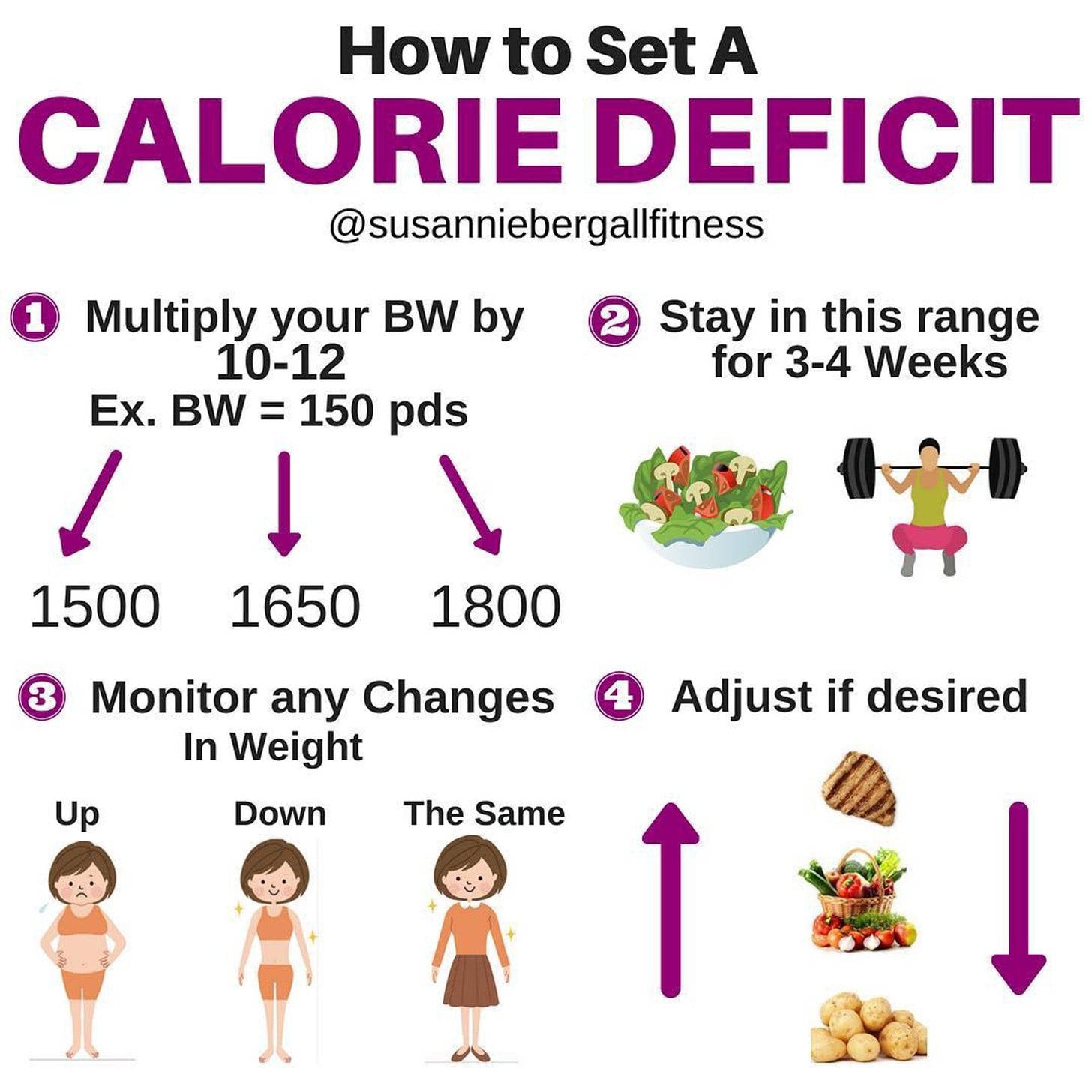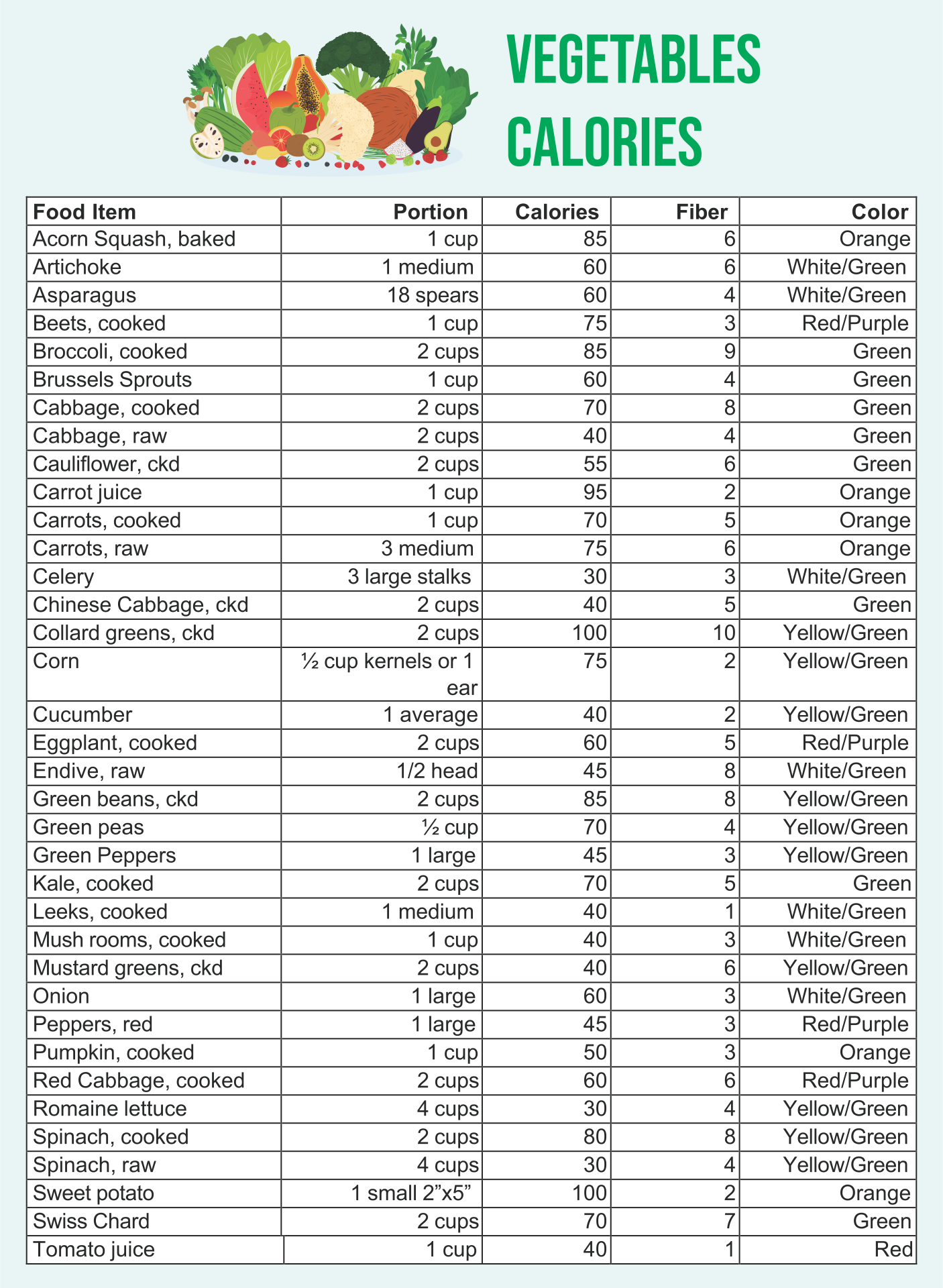As we step into 2024, achieving effective weight loss is a common goal for many individuals. The key to successful weight management lies in understanding and controlling your caloric intake. For this purpose, the ultimate calorie calculator serves as a vital tool, allowing users to tailor their diets according to personal needs and lifestyle choices. By estimating daily caloric requirements based on factors such as age, gender, activity level, and weight goals, this calculator provides a clear framework for those seeking to shed pounds.
Utilizing a calorie calculator can lead to a more informed approach to healthy eating, ensuring that you strike the right balance between calories consumed and calories burned. Additionally, it’s important to recognize that not all calories are created equal; understanding macronutrient distribution can enhance your weight loss journey.
Incorporating this tool into your routine empowers you to make better dietary choices, track progress, and stay motivated. As we navigate the challenges of weight loss in 2024, leveraging technology through calorie counting can simplify the process, making it both effective and sustainable.
calorie calculator for weight loss
How to Use the Ultimate Calorie Calculator: Step-by-Step Guide
Utilizing the Ultimate Calorie Calculator is essential for anyone aiming to manage their weight effectively. This step-by-step guide will walk you through the process to ensure the most accurate results.
First, access the calorie calculator tool on our website. You will notice fields requesting various personal details such as age, gender, height, weight, and activity level. These factors are crucial for calculating your basal metabolic rate (BMR) and total daily energy expenditure (TDEE).
Accurately input your details to receive personalized results. When selecting your activity level, consider all aspects of your daily routine, whether sedentary or highly active. The more precise you are, the better your results will reflect your actual needs.
After submitting your details, the calculator will generate your daily caloric needs. This figure indicates the number of calories required to maintain your current weight based on your activity level. You can also adjust your goals—whether aiming to lose, gain, or maintain weight—by modifying your caloric intake.
The results page will typically offer additional insights, such as the suggested macronutrient distribution, including proteins, fats, and carbohydrates. Understanding these can enhance your diet and improve your overall health. Keep in mind that monitoring your progress is key. Consider logging your daily intake to see how it aligns with your goals.
Finally, revisit the calculator periodically to reassess your caloric needs as your weight and activity level change over time. By following this step-by-step guide, you’ll be well on your way to effectively managing your calorie intake and achieving your health goals.

calorie calculator for weight loss
Personalizing Your Calorie Needs Based on Activity Levels
Understanding how to tailor your calorie requirements is essential for effective weight loss and overall health. Different activity levels greatly influence how many calories your body needs to function optimally. Whether you are sedentary, moderately active, or highly active, adjusting your diet according to your lifestyle is crucial.
For those who are sedentary individuals, daily calorie intake should primarily focus on maintaining energy balance. This means consuming enough to prevent weight gain while ensuring nutritional needs are met. Calculators can help estimate the necessary calorie intake based on basal metabolic rate (BMR) and minimal activity.
Moderately active people, engaging in activities such as walking or light workouts, require more calories to support their increased energy expenditure. Tracking additional activities, such as distance walked or time spent exercising, can help you determine the right amount of calories to support your fitness goals. It is important to emphasize whole foods and nutrient-dense options to maximize your caloric intake.
For highly active individuals, the focus shifts to supporting recovery and sustaining high energy levels. This often means consuming a higher caloric intake, emphasizing a diet rich in complex carbohydrates and lean proteins. Planning meals around workouts can optimize performance and enhance muscle repair. Consider how exercise intensity and duration affect total calorie needs.
For customization, consider tracking your daily caloric expenditure and adjusting your intake based on fitness goals. Whether your aim is to lose weight, build muscle, or maintain fitness, understanding the relationship between calorie consumption and activity levels is key. Use apps or fitness trackers to simplify tracking your progress and make necessary adjustments.

calorie calculator for weight loss
Common Mistakes in Calorie Counting and How to Avoid Them
Calorie counting can be an effective method for weight management, but many individuals fall into common pitfalls that can jeopardize their progress. One frequent mistake is underestimating portion sizes. People often rely on eyeballing their servings, which can lead to consuming significantly more calories than intended. To avoid this, consider using a kitchen scale to measure food accurately.
Another mistake is neglecting to account for liquid calories. Beverages like smoothies, sodas, and alcohol can be high in calories, and it’s easy to overlook them. Keeping a detailed food diary that includes all drinks will help paint a complete picture of your daily intake.
Some individuals also forget to track snacks, leading to mindless eating that adds up quickly. Make it a habit to log every item you consume, no matter how small. This will help maintain accountability and support your weight loss goals.
Additionally, people often fail to consider the calorie content of ingredients in meals. For example, cooking oils, sauces, and dressings can have hidden calories that significantly alter the total count. Reading nutrition labels and estimating ingredient amounts during cooking can mitigate this issue.
Finally, many count calories burned during exercise incorrectly. Relying solely on gym equipment can be misleading. Consider using a heart rate monitor or fitness app that accurately tracks your activity levels and calories burned.
By being aware of these common calorie counting mistakes and implementing practical solutions, you can enhance your weight loss journey and make informed decisions about your nutrition.

calorie calculator for weight loss
The Role of Macronutrients in Your Calorie Intake for Effective Weight Loss
In 2024, understanding the impact of macronutrients on your calorie intake is crucial for an effective weight loss strategy. The three primary macronutrients are proteins, fats, and carbohydrates. Each plays a unique role in your body’s metabolism and overall health.
Proteins are essential for muscle repair and growth, which is important when losing weight. Incorporating sufficient protein can help preserve lean muscle mass, leading to a higher metabolic rate. Foods rich in protein include chicken, fish, beans, and nuts.
Fats are often misunderstood and can be incorrectly vilified; however, healthy fats are vital for hormone production and nutrient absorption. Sources of healthy fats include avocados, olive oil, and fatty fish. A balanced intake helps in maintaining energy levels and can aid in satiety.
Carbohydrates, while often the first to be cut in a diet, are necessary for providing energy. They are particularly important for those who engage in regular exercise. Focusing on complex carbohydrates like whole grains, fruits, and vegetables can help manage calorie intake while delivering essential nutrients.
| Macronutrient | Function | Recommended Sources |
|---|---|---|
| Proteins | Muscle maintenance and repair | Chicken, fish, beans |
| Fats | Hormone production, nutrient absorption | Avocados, olive oil |
| Carbohydrates | Primary energy source | Whole grains, fruits, vegetables |
When devising a weight loss plan, it is essential to consider the caloric value of each macronutrient. Proteins and carbohydrates each provide 4 calories per gram, while fats offer 9 calories per gram. This means fat has a higher caloric density, making portion control critical.
Ultimately, achieving the right balance of macronutrients tailored to your personal goals can drastically enhance your weight loss journey, leading to more sustainable results in 2024.

calorie calculator for weight loss
Tracking Your Progress: How Calorie Counting Affects Weight Loss Results
Keeping track of your daily calorie intake is a crucial factor in successful weight loss. Research indicates that those who engage in calorie counting methods are more likely to achieve their weight loss goals. This process involves recording the calories in the foods you consume, which can help you better understand your eating habits and make necessary adjustments.
There are various effective methods for calorie tracking, including mobile apps, food diaries, and websites dedicated to fitness. These tools allow you to easily log your meals in real-time, ensuring that you remain accountable for your food choices. For instance, applications like MyFitnessPal or Cronometer provide extensive food databases and allow you to customize your calorie targets based on weight loss needs.
Moreover, calorie counting can prevent portion distortion, encouraging you to measure servings accurately. By understanding the caloric content associated with different foods, you can make healthier choices that align with your dietary requirements. This practice not only helps in reducing caloric intake but also promotes a balanced diet enriched with essential nutrients.
Consistency in tracking is key; studies show that those who diligently monitor their calorie intake see better results over time. Setting specific goals and regularly updating your progress can enhance your motivation and help you stay focused on your weight loss journey. Incorporating a variety of foods and aiming for a caloric deficit should be part of a well-rounded approach to healthy living.
Ultimately, the relationship between calorie counting and effective weight management is undeniable. Adopting a method that suits your lifestyle can lead to a significant transformation in your relationship with food and your overall health.
Incorporating Exercise into Your Calorie Calculations for Enhanced Weight Loss
When pursuing effective weight loss, it’s crucial to understand the relationship between calorie consumption and exercise. Many people often overlook how physical activity can significantly impact their overall caloric balance. By integrating exercise into your daily routine, you not only burn calories but also enhance your metabolic rate, leading to better results.
To start, it’s essential to calculate your basal metabolic rate (BMR), which indicates the number of calories your body needs to maintain basic functions at rest. Once you know your BMR, you can incorporate the calories burned during physical activities. For instance, engaging in cardiovascular workouts like running, cycling, or swimming greatly contributes to your daily caloric expenditure.
It’s also important to account for the type of exercise and its intensity. High-Intensity Interval Training (HIIT) not only burns more calories in a shorter time but can also keep your metabolism elevated long after your workout session—known as the afterburn effect. Including strength training in your routine can promote muscle growth, which contributes to a higher BMR over time.
Additionally, maintaining a food diary and logging your workouts can help you visualize the relationship between your caloric intake and calories burned through exercise. This can motivate you to adjust your diet and workout schedule accordingly for maximized weight loss success. It’s crucial to remain consistent and ensure that you are not compensating for calories burned by overeating, which is a common pitfall.
Incorporating exercise into your calorie calculations not only promotes weight loss but also significantly improves overall health and well-being. Embrace a balanced approach, and remember to enjoy the process of becoming healthier and fitter.
Staying Motivated: Real-life Success Stories and Tips for Long-term Weight Loss
Weight loss can be a challenging journey, but real-life success stories demonstrate that it is achievable through dedication and effective strategies. Many individuals have transformed their lives by adopting calorie counting as a tool for moderation. These stories often reflect a common theme: staying motivated through community support and personal goals. For instance, one woman lost over 50 pounds by tracking her daily intake and sharing her progress on social media, fostering a network of accountability.
Another inspiring tale is of a man who struggled with obesity for years. By utilizing app-based calorie tracking, he was able to identify patterns in his eating habits. He combined this with regular exercise, finding joy in activities that he never thought he’d enjoy. The key takeaway from his journey is the importance of setting realistic weight loss goals and celebrating small victories along the way.
Practical tips for those looking to stay motivated include creating a personalized weight loss plan that incorporates foods you love while maintaining balance. Incorporating healthy recipes can help keep meals exciting and satisfying. Additionally, joining an online community or local support group provides encouragement and shares resources. Regularly revisiting one’s reasons for wanting to lose weight can spark renewed motivation and commitment.
It’s also vital to track progress beyond just the scale. Keeping a journal can help individuals visualize their journey, document changes, and reflect on experiences. Adjusting goals as necessary and understanding that setbacks are part of the process can reinforce resilience. Ultimately, staying motivated in your weight loss journey is about finding what works for you and embracing change while celebrating every step in the right direction.
FAQ about Calorie Calculator for Weight Loss
What is a calorie calculator?
A calorie calculator is a tool that estimates the number of calories you should consume daily based on your weight loss goals, activity level, age, gender, and other factors. It helps you understand how many calories to eat to create a calorie deficit for weight loss.
How does a calorie calculator work?
A calorie calculator uses various equations and formulas to determine your basal metabolic rate (BMR) and total daily energy expenditure (TDEE). By inputting your personal data, the calculator can provide personalized calorie goals aimed at helping you lose weight.
Can I use a calorie calculator on my phone?
Yes! Many calorie calculator apps are available for smartphones, allowing you to easily calculate your caloric needs on the go. Additionally, most websites offer mobile-friendly versions of their calorie calculators.
Why is setting a calorie goal important for weight loss?
Setting a calorie goal is crucial for weight loss because it helps create a structured plan. By knowing your ideal calorie intake, you can monitor your diet effectively, ensuring that you maintain a calorie deficit, which is essential for losing weight.
Is it safe to use a calorie calculator?
For most individuals, using a calorie calculator is safe and can be a helpful tool for managing weight. However, it’s important to consult a healthcare provider or a registered dietitian before making significant changes to your diet, especially if you have underlying health conditions.
Will a calorie calculator guarantee weight loss?
While a calorie calculator provides guidance on caloric intake, it cannot guarantee weight loss. Successful weight loss also depends on other factors such as food quality, physical activity, metabolism, and adherence to the plan.
How often should I recalculate my calorie needs?
You should recalculate your calorie needs every few weeks or whenever you experience significant weight changes, increase your activity level, or undergo major lifestyle changes. This ensures that your calorie goals remain aligned with your current weight and lifestyle.
Can I eat whatever I want as long as I stay within my calorie limit?
While staying within your calorie limit is important for weight loss, the quality of food you consume also matters. A balanced diet rich in whole foods, lean proteins, fruits, veggies, and healthy fats is essential for overall health, energy levels, and long-term success.
